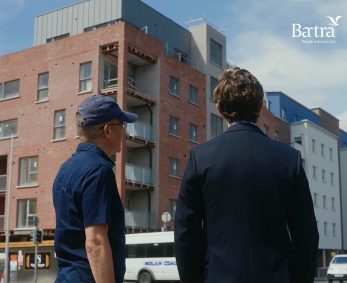Insight
How to choose the right Irish Immigrant Investor Programme


Obtaining Irish permanent residency status through the Immigrant Investor Programme (IIP) has become increasingly popular among affluent individuals and families. According to the Department of Justice in Ireland, more than 260 people pledged a total of €185.6 million to secure residency status through the IIP in 2020, which brought the total investment up to more than €1 billion since the IIP’s official launch in 2012.
The IIP is fast, simple and exceptionally flexible. It only takes 4-6 months for applicants to receive approval and there are no language or level of education requirements, nor is there an upper age limit. It also only requires investment after approval is received. Additionally, the residency requirement, meaning the required time to stay in Ireland to maintain residency status, is only one day per calendar year, which allows investors to obtain residency without moving to Ireland or becoming a tax resident there. All this explains why hundreds of high net worth individuals are applying for Ireland’s investment visas.
In our recent blog How to assess risks of immigration investor programmes, we listed some of the most prevalent risk factors from a broad perspective. If you have decided to go for the Irish IIP, here are some extra tips to guide you through the risks of each investment option and different IIP projects.
Understand Your IIP Investment Options
According to the Department of Justice, the IIP offers the following investment options:
- Enterprise Investment: a minimum of €1 million invested in an Irish enterprise for at least three years
- Investment Fund: a minimum of €1 million invested in an approved investment fund for at least three years. Such funds must be approved and regulated by the Central Bank
- Real Estate Investment Trusts (REITs): a minimum of €2 million in any Irish REIT that is listed on the Irish Stock Exchange, for at least three years
- Endowment: a minimum of €500,000 (or €400,000 where five or more applications are received) philanthropic donation to a project of public benefit to the arts, sports, health, culture or education in Ireland
While all four investment options qualify for residency status, their cost and risk vary.
The endowment route is safe as no further financial obligation is required once the donation is made and it has the lowest investment amount. However, it’s important to remember that the investment is a charitable donation and cannot be recovered by the investor at a later date – there is no return on investment (ROI). Additionally, investors should be cautious that the donation is approved by the local authority or qualifies for the IIP by being of benefit to arts, sports, health, culture or education in Ireland. Recently it was reported that the Department of Justice is investigating claims of serious irregularities in IIP donations where funds earmarked for charity projects were diverted elsewhere.


Investing in real estate investment trusts (REITs) and investment funds can both be profitable. However, the former requires an investment of €2 million. Repayment to fund investors is dependent on market conditions and fund performance, while management charges are also a consideration. Investors should understand what assets and sectors the fund invests in, and the fund’s performance either on asset value or profit. After all, market volatility is inevitable, and there are economic variations and regulatory changes, thus return is not always guaranteed. Investors should note that the Irish government has no responsibility for the performance of the investment, which is regarded as a private matter.
Enterprise investment is the preferred investment option as it has a clear-cut exit strategy and some projects provide a considerable ROI. In 2019, 70% of the total IIP approvals were via the enterprise investment option.
Unlike investing in REITs or investment funds, the €1 million enterprise investment into Bartra will be fully returned at maturity, regardless of market conditions, and the projects that derive income from the government are more resilient and more risk averse. Bartra’s nursing home projects also offer a guaranteed 4% interest per year. At maturity of the 5-year investment period, nursing home investors will receive an additional €200,000 on top of the €1 million investment. The programme offers a secure path to Irish residency within 4-6 months along with extra returns.
Click here to learn more about Bartra’s enterprise investment options.
Choose The Right Projects For Enterprise Investment
The IIP is designed to facilitate productive investment into Ireland. Therefore, the Department of Justice has specified that investments in commercial property for leasing or renting will not be considered eligible under the enterprise investment option. Particular preference will be given to investments in social infrastructure such as social housing and nursing homes. As Ireland is on course to become an immigration hotspot for HNWIs, the market is flooded with immigration companies offering Irish immigration services as well as enterprise investment projects, for which social housing projects are the majority. When considering enterprise investment for real estate projects, mitigating risk can be done by asking a few simple questions:
- Who is the developer of the projects and what is the scale of their portfolio?
- Do they have a successful project completion track record and experience running social housing and nursing homes?
To mitigate risk, investors should perform due diligence to solidly evaluate the developer. Again, the Irish government has no responsibility for the investment performance. Investors will suffer losses if the developer or enterprise defaults or fails to fulfil their contractual commitments. A proven track record also indicates a developers’ ability to manage their business during economic downturns and adversity.
- How do these IIP projects derive income?
- If the projects offer high annual interest, do the figures make sense given the nature of the business?
Investors need to understand that the objective of IIP-funded projects is to provide more social infrastructure; they are not high profit-driven businesses, therefore investors should not expect to receive a high return on investment. For social housing, for example, the majority of income is derived from the Irish State, which can be in the form of a Long Term Social Housing Leasing Scheme or other leasing schemes. For nursing homes, although they are privately run and subsidised by the government, operation costs plus the business nature mean such initiatives are not highly profitable commercial setups and an investment return from such projects of between 0-4% would make sense. For any rates higher than that, investors should be cautious.
- Are these projects located in much-needed areas, such as Dublin?
- Are these properties new-build, second hand, converted or refurbished developments?
Aside from operation profits and government subventions, understanding the value of the asset is equally important. Valuations vary across developments, with new-builds in much-needed areas having the highest value.
Investors should review the assumptions in a project’s exit plan, such as the anticipated sale price. By cross-referencing with a market study or other available data, it’s easy to see whether assumptions are reasonable.
Bartra Group is the on-the-ground team in Ireland responsible for sourcing and delivering successful investment projects for our IIP investors. We target areas where we believe there is the least risk to our investors. Bartra’s latest social housing project, Poplar Row commenced construction in July 2020 in a city centre location which offers excellent public transport links. Our social housing projects have signed a 25-year Enhanced Lease Agreement with the local authority at 95% of market rent. Click here to view our IIP portfolio.
Bartra has all the skills in-house needed to complete these complex developments, including legal, financing, construction, taxation and planning, removing almost all risks to our IIP investors. Our skill set also includes the operational skills required for nursing homes and social housing from clinical care to property management.
Summary
Immigration is a once-in-a-lifetime decision that should be carefully considered and diligently prepared for. Proper risk management is what leads to profitable investing and an enjoyable immigration process.
We pride ourselves in our streamlined services, quality projects and success rate in helping clients obtain residency. To date, Bartra has helped hundreds of families immigrate to Ireland while maintaining an application approval rate of 100% and a 100% renewal rate. Contact us now to learn more about our programme.



